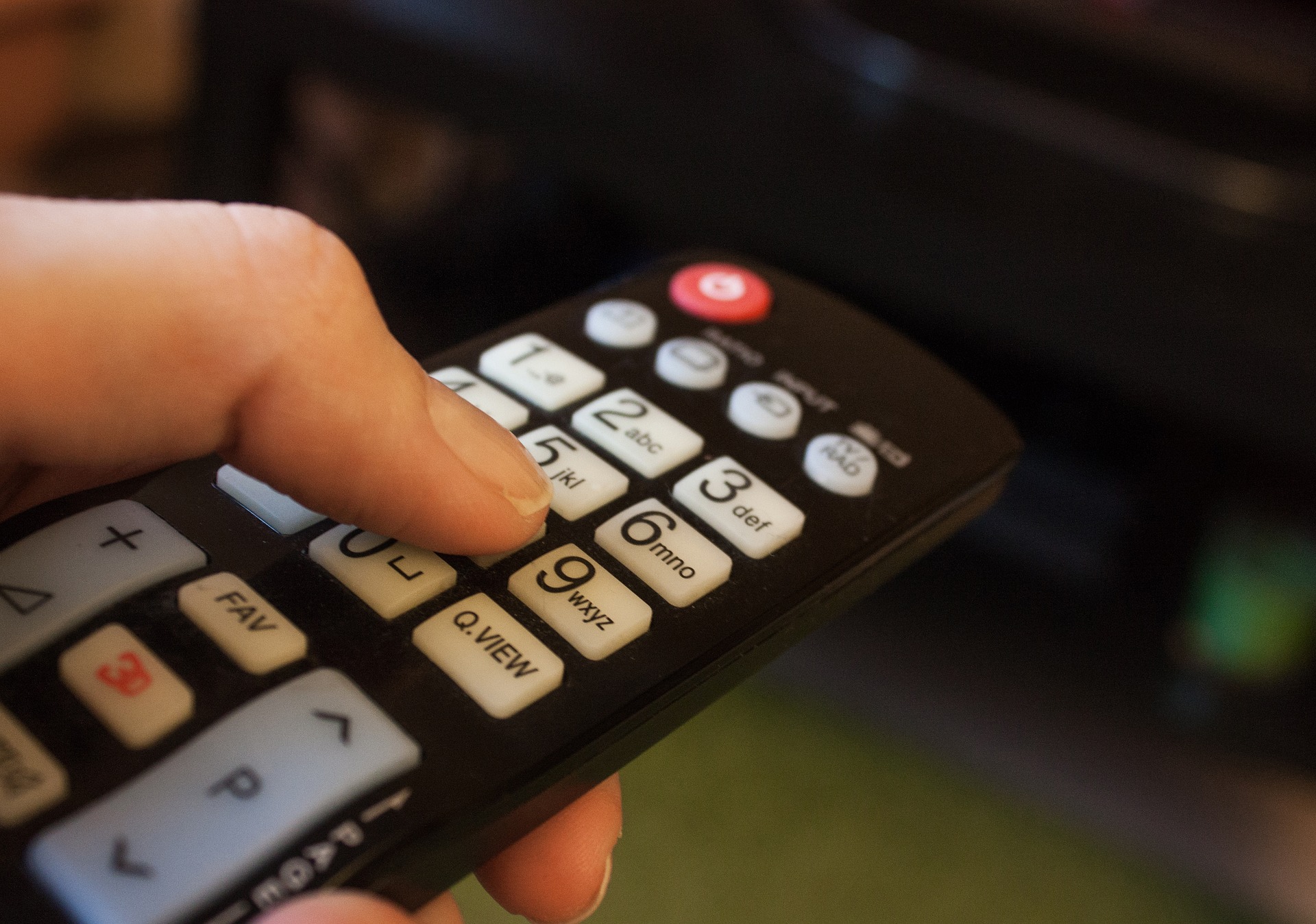Diets are obsolete, right? We know that they just don’t work long-term. Yet, we continue to be fed messages that indicate that specially designed meal plans, diet phases, rules, and guidelines will get us results!
If you are one of millions that are trying to lose weight, trim up or reduce body fat, it’s natural for ears to perk when someone claims there is a plan that will get you where you want to go.
But, what will really yield success?
Most people aren’t looking for a ‘quick fix’ to fit into a wedding dress or slim down for a beach vacation. No, they want to know how to make this proverbial “healthy lifestyle” a true reality in their life. People want to know how to lose weight for the last time and actually keep it off. No more yo-yo weight, regret, guilt or shame. No more fear of the scale or talking about health with a doctor.

As a Registered Dietitian, I could share lots of success stories of individuals that decided to adopt or tweak their current lifestyle and were able to experience the results they longed for. And for many of these individuals, they received so much more than a slimmer waistline. BUT, the best way to share real habits of those that have lost weight and kept it off long-term, is to investigate the research.
The National Weight Control Registry was established in 1994 and is the longest ongoing investigative research study on long-term weight loss maintenance. Essentially, this study is dedicated to unveiling the characteristics and behaviors of those individuals that have lost weight and kept it off for at least 1 year. It regularly follows up with participants (more than 10,000) using detailed surveys and questionnaires to learn about how they are practicing this healthy lifestyle and what it looks like in real life.
Every study participant has lost at least 30# and maintained the loss of at least 30# for 1 year or more. While 80% of the participants are female, it is still interesting to find out what successful individuals are doing on a regular basis to walk out their own freedom.
What you may also find encouraging is that these individuals have lost from 30-300# and some individuals have maintained their loss for as many as 66 years! Nothing is too big a challenge and maintaining a healthy weight really is possible!
Also, remember that your journey is your own. No one else has to do it like you and you don’t need to follow anyone else’s formula. Some participants in this study took as long as 14 years to reach their goal. While you may never want to take that long to hit your target, individuals who decide NOT to give up and to persevere another day should be celebrated!
What habits do these individuals practice that helps them continue to walk out their victory? This is a glance at what their healthy lifestyle actually looks like…
Eat Breakfast Regularly
According to this study, 78% of these successful ‘losers’ eat breakfast on a daily basis. Breakfast breaks your fast. Essentially, it is the first meal that tells your body to amp up your metabolism, spark your energy, and burn some calories. Who doesn’t want to signal their body to begin burning calories first thing in the morning?! Eating breakfast also gives the body critical nutrients for memory and focus.

According to Rush University, breakfast eaters:
- Have a lower BMI (body mass index)
- Are more likely to meet fruit and vegetable recommendations
- Have higher daily calcium intake
- Consume higher daily fiber intake
Not only is consuming the meal important but the what you eat at the meal can set you up for successful food choices the rest of the day! Just like you would at lunch and dinner, aim to consume a little bit of each of these important nutrients:
Complex Carbs Rich in Fiber- whole grain/sprouted grain bread or toast, oatmeal/oat bran, fruit, or even sweet potato
Lean Protein- eggs, low-fat greek yogurt, lean chicken/turkey sausage, low-fat cottage cheese
Healthy Fat- avocado, olive oil, low-fat cheese, nut butters, nuts
Calcium Rich Foods- low-fat dairy, dark leafy greens, almonds/almond milk
For some easy and delicious breakfast recipes, check out these ideas:
Slow Cooker Steel Cut Oats Recipe Blueprint
Overnight Oats Recipe Blueprint
Apple Cinnamon Oatmeal Muffins
Regularly Monitor their Weight
While some people have a love-hate relationship with the scale, 75% of those in the study weigh themselves at least 1 time per week.
Registered Dietitian Nutritionists may vary on recommendations about whether the scale is a helpful or harmful tool in the area of weight management, but obviously, these participants have found it to be a useful tool in monitoring their status. This shows that they don’t reach a target and then neglect to check in with themselves. Instead, most of these individuals have found the scale to provide helpful, maybe even necessary accountability.

The word maintenance means “upkeep” or “to keep in an existing state.” Weight loss and changes in lifestyle must be maintained- an action. It is continual movement and motion to keep up what the individual has worked so hard to achieve. The NWCR participants lost dozens, if not hundreds of pounds! They identified a tool that could help them own their choices and stay accountable on a weekly basis.
As you determine what is appropriate for you, read my post How Often You Should Step On The Scale, to provide a bit more food for thought.
Limit TV Consumption
Interestingly, NWCR study individuals don’t binge on the latest tv shows. At least, 62% of them watch less than 10 hours of tv per week, that’s about 1.5 hours of tv per day. That’s not really that much…like the local news plus a 1-hour drama each day.
Not surprisingly, research has shown a link between hours of tv viewing and obesity along with several other diseases including diabetes, heart disease, and early death! The Nurses’ Health Study of 50,000 middle-aged women showed a 23% risk of becoming obese for every 2 hours of daily tv. And, other studies like this one, have confirmed these results.

While your favorite show will not pack on the pounds, the event of tv viewing is not an entirely harmless activity.
- Several lab studies (like this one) show that tv commercials influence food consumption
- TV viewing is associated with higher calorie intake of poorer quality foods (read more)
- Contributes to “sit-time,” and inactivity doesn’t burn many calories!
Exercise About 1 Hour Daily
While exercise alone can’t make up for a poor diet, it is a tremendously useful tool for weight loss and maintenance- when combined with healthy food and lifestyle behaviors. These study individuals are not just meeting the minimum exercise requirement of 30 minutes daily, but they are going above and beyond.

It is critical to note as well that this is a behavior these individuals practice daily. It has been worked into their schedule, routines and all those crazy busy days! It is not just a good intention but a way of life and 90% of these study participants claim this behavior. According to the NWCR statistics, 94% of people increased their exercise from their previous status and the most reported form of exercise is walking.
For anyone choosing to lose weight or maintain weight loss, exercise appears to be a critical component. But, remember that it doesn’t have to be a dread! There are dozens of ways to get active and have fun doing it! Also encouraging is that doing higher-intensity forms of physical activity can burn just as many calories and improve your fitness level in less time! So, if 60 minutes of exercise seems like just another item to add to your already too full daily list, consider HIIT, walk-jog, kickboxing or other forms of higher intensity workouts.
Need more ideas to get active? Check out these articles:
The Best Exercise Workout for Awesome Results in Less Time
Beyond Resolutions- Making Exercise Habits Stick

Everyone’s story is different. Weight loss and healthy living looks different for each of us. Don’t try to claim or live someone else’s story. Be OK with walking out your own health journey. BUT…
Do learn from those who are a step or 2 ahead of you
Do observe behaviors in your own life that are halting your progress, swinging you back into negative cycles and essentially crippling your success.
Your personal achievement is possible. People don’t win because they intend to. People win when they learn from mistakes, strengthen weak areas, and position themselves, again and again, to go at it another day.
Go win today!
REFERENCES
National Weight Control Registry: http://nwcr.ws/default.htm
Rush University Medical Center, The Science Behind Breakfast: https://www.rush.edu/health-wellness/discover-health/why-you-should-eat-breakfast
Harvard, School of Public Health, Television Watching and Sit Time: https://www.hsph.harvard.edu/obesity-prevention-source/obesity-causes/television-and-sedentary-behavior-and-obesity/
CDC, Exercise Requirements for Adults: https://www.cdc.gov/physicalactivity/basics/adults/
Harris, Jennifer L.; Bargh, John A.; Brownell, Kelly D
Priming effects of television food advertising on eating behavior.
Health Psychology, Vol 28(4), Jul 2009, 404-413. http://dx.doi.org/10.1037/a0014399
Barr-Anderson DJ, Larson NI, Nelson MC, Neumark-Sztainer D, Story M. Does television viewing predict dietary intake five years later in high school students and young adults? The International Journal of Behavioral Nutrition and Physical Activity. 2009;6:7. doi:10.1186/1479-5868-6-7.
Hu FB, Li TY, Colditz GA, Willett WC, Manson JE. Television Watching and Other Sedentary Behaviors in Relation to Risk of Obesity and Type 2 Diabetes Mellitus in Women. JAMA. 2003;289(14):1785-1791. doi:10.1001/jama.289.14.1785
Grøntved A, Hu FB. Television Viewing and Risk of Type 2 Diabetes, Cardiovascular Disease, and All-Cause Mortality A Meta-analysis. JAMA. 2011;305(23):2448-2455. doi:10.1001/jama.2011.812.
